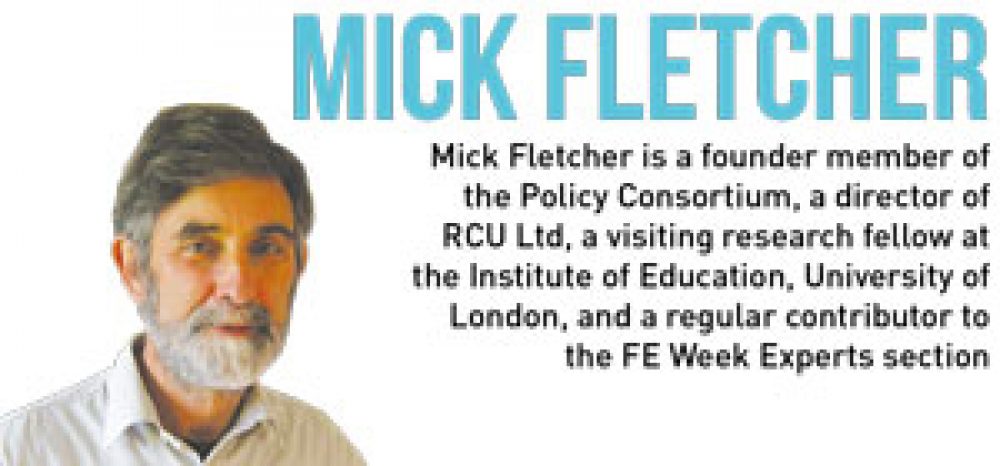Mick Fletcher takes a closer look at the skills funding letter to see what else it indicates other than a depressing budget cut of up to 24 per cent for providers next academic year.
Much of the response to the skills funding letter published today has concentrated on the effective 24 per cent cut to the adult skills budget. It is shocking even if wholly predictable.
The consequence will be further cuts in provision and cuts further down the line too as funding for franchise partners, often for work with the most disadvantaged communities, is withdrawn to help balance the books.
An increase in the loan allocation will be of little help since institutions are clearly struggling to make use of what they already have.
These cuts need to be seen alongside the collapse in part time higher education, the closure of libraries up and down the land and the drop in workforce training offered by employers.
Taken together they mean that the opportunities for individuals to better themselves through education are shrinking fast.
Along with the figures, however, the grant letter gives interesting evidence of the growing marginalisation of the Skills Funding Agency (SFA).
Six out of the 14 funding lines in the document are managed by the Department for Business, Innovation and Skills (BIS) or some agency other than the SFA, which must encourage speculation about its future.
The grant letter gives interesting evidence of the growing marginalisation of the Skills Funding Agency
There have been rumours in the past about merging BIS with the Department for Education in order to bring all education back under one roof, but the transfer of at least some BIS activities around ‘remedial’ education to the Department for Work and Pensions (DWP) looks equally likely. Either way I wouldn’t bet on the SFA lasting until Xmas.
A careful reading of the funding letter enables one to see two possible strands of a future settlement.
One of them gives slight grounds for optimism and the other more cause for alarm. The choice will be affected but not wholly determined by outcome of the election so those in the sector need to read the signs carefully.
The optimistic vision of the future is the reflection in adult education of wider trends towards devolution.
The recent, supposedly ‘premature’ SFA letter outlining ways in which Local Enterprise Partnerships (Leps) can influence adult skills budgets was widely criticised, but local influence (as opposed to detailed second guessing of institutional management) must be right.
To the extent that local authorities can add a broader community vision and some democratic legitimacy to the enthusiasm and employer engagement brought by LEPs localism offers more opportunities than threats.
There is a chance that adult education might be rescued by localities even as it is abandoned by the centre; after all the FE system was mainly built locally in the absence of any coherent national vision and finds its strongest support in local communities rather than the corridors of Whitehall.
The less optimistic future concerns the retention by BIS of funds for individual pet projects of which perhaps the most egregious example is the Employer Ownership pilots; their funding is up by 17 per cent despite a track record of success that is all but invisible.
The shadowy process for identifying new National Colleges is another example of opportunistic politics.
The risk is that any rational architecture for setting policy priorities for investment in adult education is undermined by an expansion of the pork-barrel politics associated with City Deals, where every public investment is timed and framed to suit short term political agendas rather than wider public need.
Colleges and other providers may be able to influence how these competing trends play out. If they give their active support to the local coalitions that are emerging in and around our major cities they may find that civic pride and a care for communities is a better source of support for adult education that the narrow economic instrumentalism that motivates BIS.
If they resist then the risk is that future arrangements will not only be short of funding but also short of any transparent logic.









Your thoughts